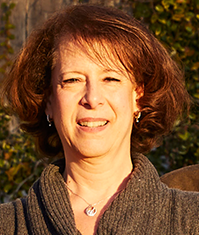How do you instill good money habits in kids and teens that lead to smart decisions as adults? Wealthspire Advisors hosted a virtual fireside chat on Sept. 28 answering the question.
Heather Flanagan, Managing Director and Head of Family Office Services; Oliver Pursche Senior Vice President, financial advisor and author of Money Can Grow on Trees: When you take care of it!; and Sheila Schroeder, Senior Vice President, Regional Head of Business Development and author of the soon-to-be released book, You Can Talk About Money laid out a plan for families to have meaningful conversations about finances.
Start The Conversation Early and Have It Often
Begin the conversation when your child starts to show curiosity about money. Use everyday activities like shopping at the grocery store to talk about how much things cost. “If they pull something off a shelf and ask you to buy it for them, that’s a great time to have a very simple conversation,” Schroeder recommends. “Ask, do you know how much does this cost? How much do you want it?”

These conversations don’t have to be long, but they should be frequent. Pursche says, “This is not a one and done. The more often you talk about money, the more detailed you get. Your little nuggets of information will start to sink in.”
Advance the discussion through play. Set up a pretend store at home or use a box as a mock ATM. Play board games like LIFE and MONOPOLY. By the time they’ve figured out the value of money through games, start giving your kids an allowance.
Cash in on Allowance
Whether you tie the allowance to the completion of chores or not, it’s a great first step in developing financial literacy. Schroeder recommends using cash; “It’s a tactile, experiential way for children to start to understand what money is.”
She also suggests using three glass jars to distribute the money – one for spending, one for savings, and one for sharing as charitable contributions. “Decorate the jars and put them in a place where the kids can watch their money grow. It’s fun and helpful to have something visual.”
There’s no rule about how to determine how much to give. Talk to friends and family about what they’re doing to get ideas about how much allowance you’ll give your child. As they mature, add more money to cover typical, regular expenses. Help them build a budget that includes items like school supplies, snacks, and other necessities, so they learn to manage their money and cover their needs.
Pursche says it’s okay if they make a mistake; “If your 8- or 9-year-old wants to buy a toy with their allowance, ask, ‘Is that how you want to spend your money because when it’s gone you won’t get more until your next allowance?’ You’re helping them understand the importance of the choices they’re making.”

Save What They Earn
Once a child is old enough to get a job, talk to them about putting some money away. Start a custodial IRA and consider matching their contribution as a generous way to help their money grow. It will teach a teen about investing and compound interest. “This is a powerful way to show the time value of money,” says Pursche. “This is a complicated conversation because it gets technical, but if they’ve already used the save-spend-share jars, they’ll be familiar with watching their money grow.”
Plan For the Future
“As parents you’re creating a roadmap for your child’s future,” says Flanagan. “Ask them where do they want to go? What do you want life to look like in 40 years?”

There are tools available to help kids map out the future and decide what steps to take today. Invite your teen or young adult to a meeting with your financial advisor and give them an opportunity to ask questions.
Conversations about money are not easy, but they are important. Take every opportunity to educate your child. As Pursche says, “Over time their money knowledge will grow.”
Recommended Books:
- Get Financially Naked
- The Little Red Book on investing
- Money Can Grow on Trees: When you take care of it!
- On Your Own Two Feet
- Raise Financially Aware Kids
- Rich Dad, Poor Dad
More From Better
- Hurricane Ian Devastates Florida: How To Help Those Impacted by the Storm
- How to Help Those Affected by Hurricane Fiona and Aid Response Efforts in Puerto Rico and Dominican Republic
- Katie Couric Reveals Breast Cancer Diagnosis and an Important Message: Don’t Forget Your Annual Mammogram

Susan Solomon Yem is an internationally published writer specializing in family, education, and women’s issues. Throughout her career she has focused on families, but her own five children are her biggest priority.

